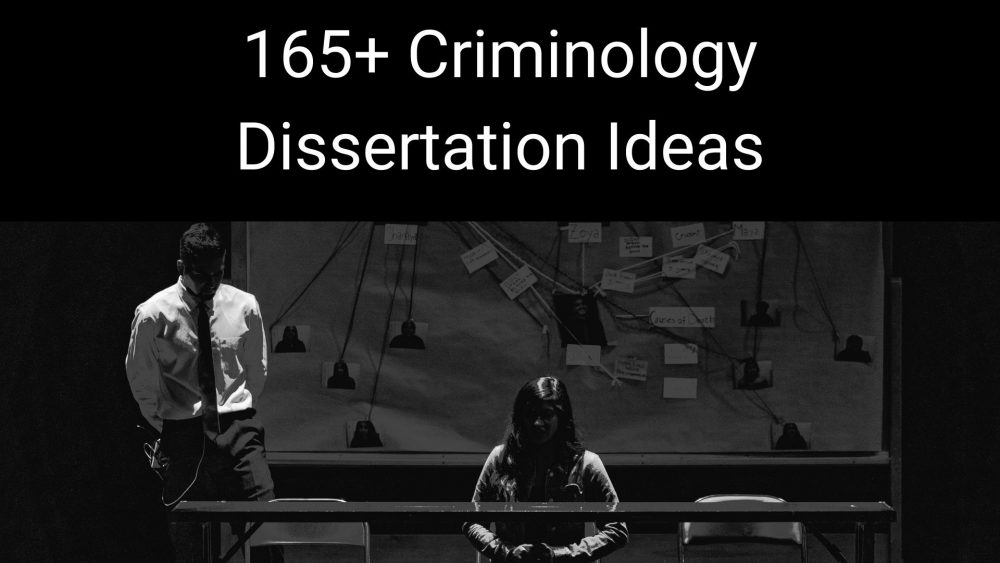Don’t know how to write a dissertation proposal? Don’t worry about it! In this blog post, you will learn everything there is to know about the dissertation proposal. We will show you what it is and why it is important to write one correctly. We will discuss the dissertation proposal format in great detail and show you a dissertation proposal outline that works great for most topics. In addition, you will get an example of dissertation proposal for free.
To help you write a great proposal, we have also included a step by step guide on how to write a proposal for dissertation. Finally, we have compiled a list of tips, tricks and advice that should help you do an even better job. Are you ready to start writing a dissertation proposal? Read on!
Table of Contents
What Is A Dissertation Proposal?
So, what is a dissertation proposal? Why is it important? Why would you want to write one? A dissertation proposal is a document that outlines the proposed research project that a student intends to undertake as part of their doctoral program. The purpose of the proposal is to convince the student’s academic committee that the proposed research is worthwhile, feasible and original. The proposal typically includes:
- An introduction
- Literature review
- Research methodology
- Research aims and objectives
- Expected outcomes
- A timeline for completion
The proposal should also address any potential ethical considerations or limitations of the study, and should provide a justification for the significance of the research. Once the proposal is accepted, the student can begin working on their dissertation, which will be a more extensive and detailed version of the proposal.
Why Is The Dissertation Proposal Important?
Before we show you how to write a proposal for a dissertation, we want to make sure you understand just how important this paper is. A proposal is important because it:
- Provides a framework for the research project. The proposal outlines the structure of the research project, including the research questions, methodology, and expected outcomes.
- Demonstrates the student’s readiness for the research. The proposal requires the student to undertake a rigorous review of the literature and develop a research plan.
- Helps to identify potential issues. The proposal provides an opportunity to identify any potential issues or limitations with the research project before it even begins.
- Facilitates feedback and discussion. The proposal is typically reviewed and critiqued by the student’s academic committee.
A Simple Dissertation Proposal Outline
If you’re looking for an example proposal dissertation, you’re in luck. The thesis proposal format is not overly difficult, but you should definitely take a look at our outline to get a feel of how you should structure your paper:
I. Introduction
- Introduce the topic of the dissertation and provide background information.
- Write a clear research question or statement of the problem that the study aims to address.
- Explain the significance of your research and discuss the contribution it will make to the field of study.
II. Literature Review
- Review and critically evaluate relevant literature in the field of study.
- Identify gaps or inconsistencies in the literature; gaps that the research project will address.
- Demonstrate how the proposed research fits into and advances the existing body of knowledge.
III. Methodology
- Describe the research design and methodology that will be used to collect and analyze data.
- Justify the choice of methodology and explain how it aims to answer the research question.
- Address potential limitations and ethical considerations related to the methodology.
IV. Research Aims and Objectives
- Clearly state the research aims and objectives that the study will address.
- Explain how these aims and objectives are linked to the research question and contribute to advancing the body of knowledge on the matter.
V. Expected Outcomes
- Talk about the expected outcomes of your research.
- Explain how these outcomes will contribute to the existing body of knowledge and address the research question.
VI. Timeline for Completion
- Provide a detailed timeline for completing the research project.
- Clearly present key milestones and deadlines, including the expected completion date for the dissertation.
VII. Conclusion
- Summarize the main ideas in your proposal.
- Reinforce the significance of the research project.
- Indicate the potential implications of your findings.
How To Write Dissertation Proposal: A Step by Step Guide
If you want to learn how to write dissertation proposal quickly, the best way to do it is to follow a reliable step by step guide. The good news is that our experts have written one such guide for you. Here is exactly what you need to do to write dissertation proposal papers the right way:
- Choose a topic. Start by choosing a topic that interests you and that is relevant to your field of study. The topic should be specific enough to allow you to conduct focused research and broad enough to allow for adequate exploration.
- Research existing literature. Conduct a review of all of the existing literature on the topic you’ve chosen. This will help you identify any gaps in knowledge that you can address in your research.
- Define your research questions. Based on the literature review, develop specific research questions that you will address in your dissertation. Your research questions should be clear and concise. Remember that you will need to answer these questions.
- Develop the research methodology. Choose a research methodology that is appropriate for your research questions. You can use qualitative, quantitative or mixed methods. Be sure to justify your choice of methodology so that the committee doesn’t ask for clarifications.
- Write the introduction. Start your proposal with an introduction that provides an overview of your research topic, research questions and methodology. You should include the thesis in the introduction.
- Write the literature review. Next, write a literature review that summarizes existing research on your topic. Identify any gaps in knowledge that you will address in your research.
- Present your methodology. Describe your research methodology in detail, including your data collection methods and data analysis techniques. Another researcher should be able to replicate your experiments and get the same results after reading your methodology.
- Define your expected results. Based on your research questions and methodology, define the expected results of your research. Be very specific about what you aim to demonstrate with your paper.
- Develop a timeline for writing a proposal for dissertation. Create a timeline that outlines the different stages of your research, from data collection to analysis and writing. Also, don’t forget to include the date on which you expect the paper to be completed.
- Write the conclusion. End your proposal with a conclusion that summarizes your research topic, research questions, methodology, and expected results. Show your readers why your research is important.
- Edit and proofread your work. Before submitting your proposal, be sure to edit and proofread it carefully to ensure that it is free of errors and presents your research clearly. You want your proposal to be perfect in every way.
It is usually a good idea to have your friends and family take a look at the proposal and give you some feedback. You’d be surprised by how many things can be improved this way. Even better, you could get in touch with our expert editors and proofreaders and have them revise your work. This is a sure way to ensure that your proposal is top notch.

Tips, Tricks And Advice
Before we get to the dissertation proposal example, we want to share some effective tips, tricks and advice that will help you do a better job writing your paper:
- Start early. Give yourself plenty of time to write your dissertation proposal. It’s a complex document that requires careful planning, research, and writing, so don’t leave it until the last minute.
- Get feedback. Before submitting your proposal, share it with your supervisor or another academic who can provide feedback.
- Be clear and concise. Use clear and concise language to communicate your research topic, questions and methodology.
- Provide context. Provide context for your research by explaining why it’s important and how it fits into existing research in your field.
- Justify your methodology. Be sure to explain why you have chosen a particular methodology and how it will help you answer your research questions.
- Be realistic. Make sure your proposed research is feasible given your time, resources and skills. Avoid proposing research that is too broad or ambitious, as this can make it difficult to complete your dissertation on time.
- Follow guidelines. Follow the guidelines provided by your university or department for formatting, length, and content. This will help you avoid unnecessary revisions and ensure that your proposal meets the requirements.
- Keep it organized. Use clear headings, subheadings and sections to organize your proposal. This will make it easier for your readers to follow your argument and find the information they need.
- Use citations. Use citations to acknowledge the work of other researchers and to support your own arguments. This will demonstrate that you have done your research and are aware of existing literature on your topic.
A Free Dissertation Proposal Sample
Are you looking for an excellent dissertation proposal template that you can follow? Our experts are here to help you with your school projects. We have written a great dissertation proposal sample that you can use for free. You can use this example to learn how PhD dissertation proposals are written, but you should avoid copying content from the sample because a plagiarism detector can flag your paper. If you need more than the following example of a dissertation proposal, get in touch with our experts:
Background of the Problem
Employee performance is a significant concern of any organization because it determines business performance. According to Fachrunnisa, Adhiatma & Mutamimah (2014), employees achieve the desired level of performance when they are effectively engaged or involved in the management of the organization. However, the impact of organizational culture on both the engagement and performance of employees has not been measured distinctively using empirical evidence, as illustrated by Breevaart, Bakker, Demerouti & Derks (2016).
Statement of the Problem
Organizations provide their employees with requirements related to expected level of participation in work activities and performance. However, business leaders and managers often forget that they must create a supportive organizational culture that will inspire employee engagement and motivate performance.
Purpose of the Study
The purpose of the proposed investigation is to determine how organizational culture influences employee engagement and their performance at work. The study aims at providing business leaders and managers with evidence-based insights for establishing organizational cultures that inspire employee engagement and motivate performance.
Research Objectives
- To assess the impact of organizational mission, vision and values on employee engagement in the service sector.
- To determine how organizational culture influences job performance in the service sector.
- To establish the relationship between the consistency of organizational culture and employee engagement and job performance in the service sector
Research Questions
- To what extent do the mission, vision and values of organizations in the service sector influence employee engagement?
- How does organizational culture influence job performance in the service sector?
- How does the consistency of organizational culture shape employee engagement and job performance in the service sector?
Significance of the Study
The proposed study is significant to business management practice. It will specifically provide business leaders and managers with practical reasons for establishing supportive organizational cultures that are meant to improve the level of employee engagement and improve their performance at work.
Methodology
Research Design
A descriptive research design will be applied in carrying out the proposed investigation. This design will allow for description of the characteristics of work environments under study in terms of working culture, employee engagement and motivation for performance. Descriptive studies are also useful in establishing relationships existing between research variables (Sekaran & Bougie, 2016).
Study Population
The population of the proposed study is composed of members of organizations within the service sector. This includes the business leaders, managers and employees of these organizations.
Sampling
Stratified sampling will be applied in selecting a representative sample from the study population to participate in the research process. The selected sampling technique is useful in categorizing members of a study population into homogenous subgroups, from which participants are randomly selected (Bryman & Bell, 2015). A sample of 120 participants, including business leaders, managers and employees of 10 organizations in the service sector will be selected and engaged in the research process.
Data Collection Methods
Self-administered questionnaires will be used to gather data for the study. Questionnaires are preferred because they are standardized, efficient and cost-effective data collection tools (Sekaran & Bougie, 2016). The questionnaires will have open and closed ended questions pertaining to the background information of participants, the culture of their organizations, employee engagement strategies and employee performance.
Data Analysis
Descriptive statistics will be applied in the analysis of research data. Through descriptive statistics, research data will be organized and interpreted in line with the relationship between organizational culture, employee engagement and performance.
Get Quick Help Writing A Dissertation Proposal
Do you need fast online dissertation help? Our experts are ready to spring into action and write you the best possible PhD dissertation proposal. Our writers have extensive experience with such projects as writing a thesis proposal or academic papers, so you will receive a high quality, custom paper written according to your specifications.
All our writers have at least one PhD degree and they are all ENL native English speakers. We can write a proposal for any undergraduate or graduate student in any college or university. In addition, we can help high school, college and uni students with 100% original essays and research papers for any class.
Get the best academic writing services from our team of knowledgeable and highly educated writers, editors and proofreaders.
Find more interesting content related to thesis writing below:
- How To Write A Thesis Introduction Without Effort
- Writing A Top Thesis Outline – Your Comprehensive Guide
- How To Write A Counterclaim For A Successful Result
- Theoretical Framework: Research Writing Guide
- How To Write A Hypothesis – A Guide & Detailed Instructions
- How To Write A Perfect Thesis Proposal
- Writing Thesis Acknowledgement Section Like A Pro
- How To Narrow Down A Research Topic Successfully
- How To Formulate A Research Problem
FAQ
Below, you can find answers to the most frequently asked questions regarding the dissertation proposal:
Can I make changes to my dissertation proposal after it is approved?
It is possible to make changes to the dissertation proposal after it is approved, but any significant changes may require additional review.
How long should a dissertation proposal be?
The length of a dissertation proposal can vary depending on the requirements of the program. Most proposals are typically between 10 and 20 pages.
Who reviews the dissertation proposal?
The dissertation proposal is typically reviewed by the student’s academic committee.
How long does it take to write a dissertation proposal?
On average, it can take anywhere from a few weeks to a few months to write a good dissertation proposal. You need professional help if you are about to miss the deadline.
What if my dissertation proposal is not approved?
If the dissertation proposal is not approved, the student will need to revise and resubmit it for review. You can get editing help from an online dissertation writing service, so you have no reason to stress!






